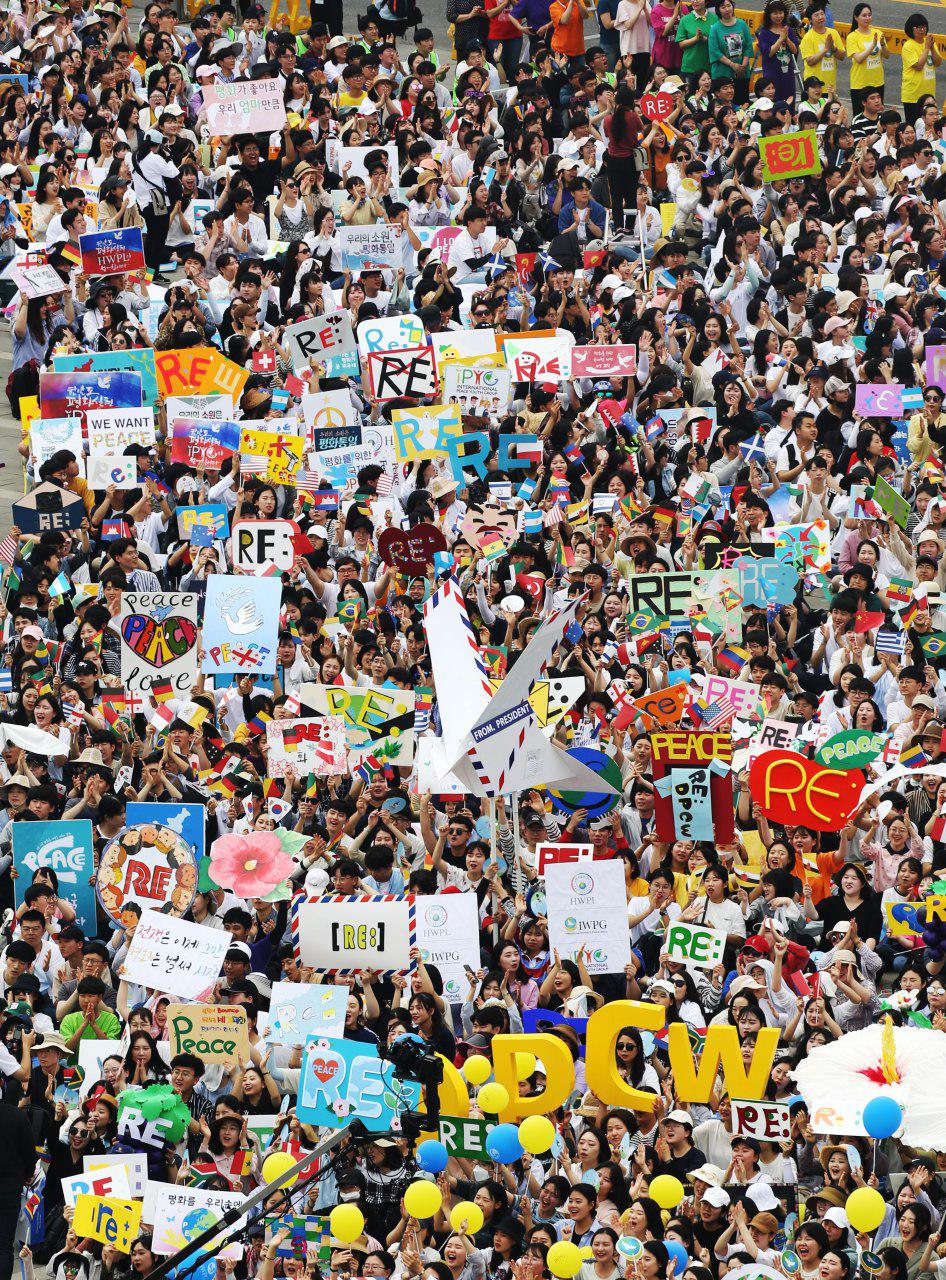Young people take part in London’s, International Peace Youth Group, Peace Walk
On Saturday 25 May the 6th Annual Commemoration of the Declaration of World Peace and the Peace Walk was held in about 126 locations in 77 countries around the world. This included the United Kingdom, Australia, China, Germany, India, Russia, South Africa, the Philippines, and United States of America.
The Declaration of World Peace was proclaimed on the 25th of May, in 2013 and on Saturday 25 May 2019, young people from across London came together to commemorate this declaration and take part in a peace walk.

The event, which took place in London, United Kingdom focused a Peace Letter Campaign led by the International Peace Youth Group (IPYG), an affiliated youth organization of Heavenly Culture, World Peace, Restoration of Light (HWPL). The campaign urges heads of state to support the Declaration of Peace and Cessation of War (DPCW) as a legally binding document by submitting it as a resolution to the United Nations. It also works to practically establish an international framework for peace and instil a sense of responsibility within students and youth as they play an important role in the work of peace that goes beyond their own country, ethnicity, culture or religion.
The theme for the event was “the World’s Call for Peace, Urging for the Support of the Declaration of Peace and Cessation of War (DPCW)”. The event was hosted by Heavenly Culture, World Peace, Restoration of Light (HWPL), an international peace NGO affiliated with the UN ECOSOC and the UN DGC.
The Declaration of World Peace was proclaimed on the 25th of May 6 years ago and the peace walk in London began with the slogan of “Become a messenger of peace”.
This peace walk took place simultaneously in various places all over the world on the same day with the aim of promoting the participation of individuals in the international community.
The origin of the declaration is in South Korea when more than 150,000 citizens gathered and took part in the “Peace Letter Campaign” to call for the support for the DPCW. It is the legacy of the Declaration of World Peace and it addresses principles of conflict resolution and international cooperation for peacebuilding. This includes looking at the enforcement of international law, peaceful resolutions and spreading a culture of peace.
Chairman Man Hee Lee of HWPL, asserted the significance of the DPCW by saying
“The DPCW represents the will of global citizens and it asks for the global community to become one under peace and to peacefully coexist. This Declaration advocates for everyone to build peace so that the productions of weapons cease and the future invasions of other countries is prevented. As the national leaders support the 10 articles and 38 clauses of the DPCW and religions harmonize for peace, the global community can take the road to peace.”
Mr. Young Min Chung, General Director of IPYG, an organisation that leads the “Peace Letter Campaign” worldwide, also said:
“Many people are taking part in this work and have confidence in the DPCW that peace can be realised for sure. The DPCW is perfectly composed of the 3 parts; the prevention of conflict, method to settle disputes, and framework to maintain a world of peace. In addition, it is the practical solution. It has been only three years since the DPCW was proclaimed, but we have gained a lot of support at a national level as well as the support from the citizens all across the globe.”
According to an HWPL official, the DPCW stresses the vital role of citizens as central to the peace-making process. The peace walk that have taken place in London and around the world highlights the collective voice of global citizens who support the message of peace. So far, approximately 1.3 million citizens support the DPCW and have been sent letters to their respective President or Prime Minister in 192 countries. IPYG now awaits their responses.
A UK IPYG volunteer, based in London wrote a peace letter of her own and gave a speech on the day commenting:
“… when I saw these [YEW] volunteers, all young professionals, devoting hours of of unpaid work… I was shocked, to be honest. I wondered what motivated them. In London, money and time are the two things people never want to sacrifice, so I wondered what made them work like this. When I attended my first workshop as a volunteer, I realized the reason: they have the answer to peace.”

